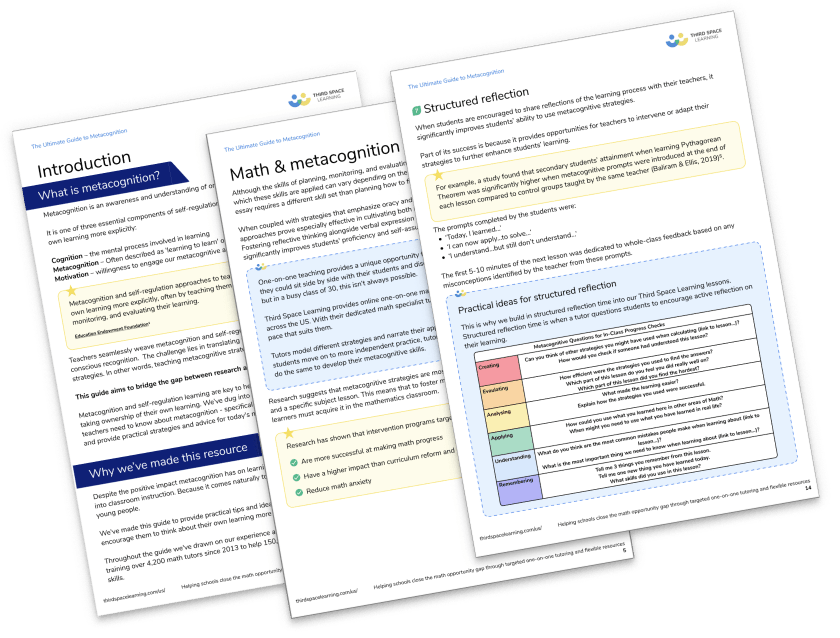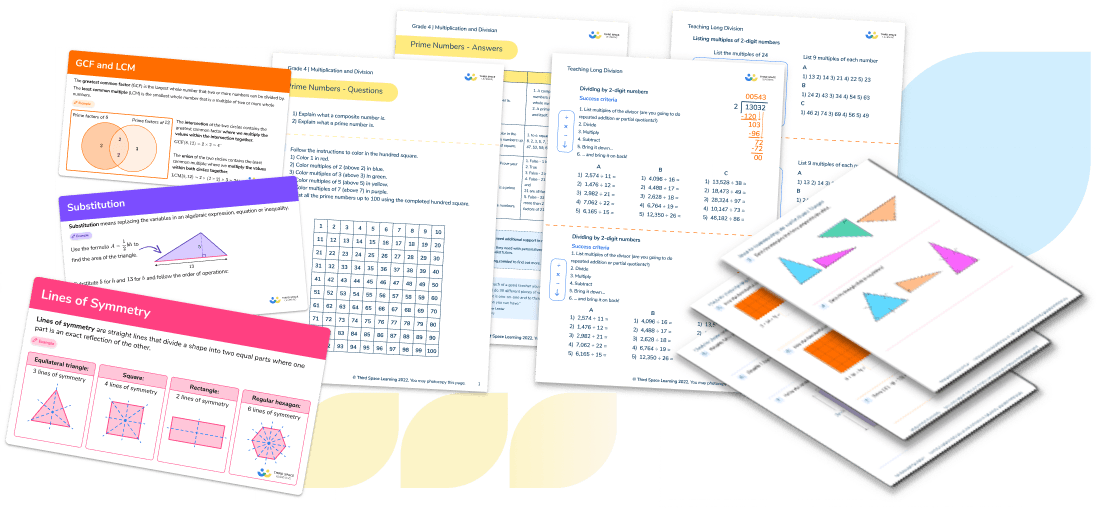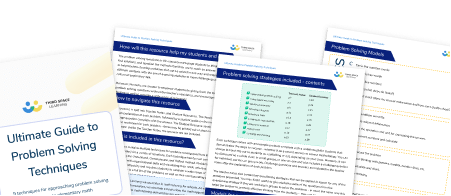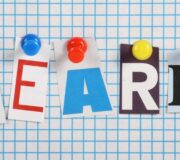What The Best Elementary Math Teachers Do And How We Can Learn From Them
Ask any educator and they will tell you that teaching elementary math effectively is not an easy thing to do; for many elementary school teachers, math is one of their trickier subjects to teach.
This then leads to the question of whether truly effective elementary math teachers do anything different when compared to the way they teach any other curriculum subject?
What does any effective teacher do apart from spin multiple plates, juggle ten things with one hand and perform daily miracles?
Perhaps being effective means being amazing, perfect and brilliant all rolled into one?
The potential number of ways to be effective in the classroom are endless, and this means that there is no lack of advice out there for teachers!
- How To Be Effective When Teaching Elementary Math: What Do The ‘Experts’ Say?
- Habits Play A Big Role In The Effectiveness Of Teaching Elementary Math
- Having A Positive Mindset Is Crucial For Effective Math Teaching
- Personal Characteristics Of Effective Elementary School Math Teachers
- The Number One Quality You Need To Effectively Teach Elementary School Math
- Possessing Passion Is Key To Effective Teaching
- What Does An Effective Elementary School Math Teacher Do When It Comes To Assessment?
- What Does An Effective Elementary School Math Teacher Do When It Comes To Research?
- Why Effective Elementary Math Teachers Don’t Rush Into Interventions
- What makes great teaching?
- Why Evidence Is Crucial For Effective Teaching
- It All Comes Down To The Evidence And Knowing What Works
- Mastery And Effective Elementary School Math Teaching
- Effective Math Teaching Isn’t Easy, But It Is Worth It!
How To Be Effective When Teaching Elementary Math: What Do The ‘Experts’ Say?
In How to be an Amazing Teacher, Caroline Bentley-Davies, says that really special teachers have the ability to make time fly.
Effective math teachers can do just that.
These amazing pedagogues can captivate, absorb and enthrall by effortlessly mixing together dynamic skills that she summarizes as the five Es:
- Enthusiasm
- Expertise
- Empathy
- Empowerment
- Enterprise
Caroline says these define the “essence of an amazing teacher” and they mirror the key qualities that an amazing teacher has in abundance.
The Ultimate Guide to Problem Solving Techniques
Download these 9 ready-to-go problem solving techniques that every elementary student should know
Download Free Now!
Habits Play A Big Role In The Effectiveness Of Teaching Elementary Math
In The Perfect Teacher, Jackie Beere talks about embedding the 7 habits of highly effective teachers: self-management, reflective practice, flexibility, optimism, empathy, courage and resilience and collaboration.
She says that being effective is about being “the very best teacher you can be” and reminds us that our mindset is the number one driver of our teaching identity:
“the way you think makes you the teacher that you are.”
Math teachers can do that too, with effective ones embodying the can-do growth mindset.
To be a ‘perfect’ teacher comes down to being purposeful and internalizing seven mindsets:
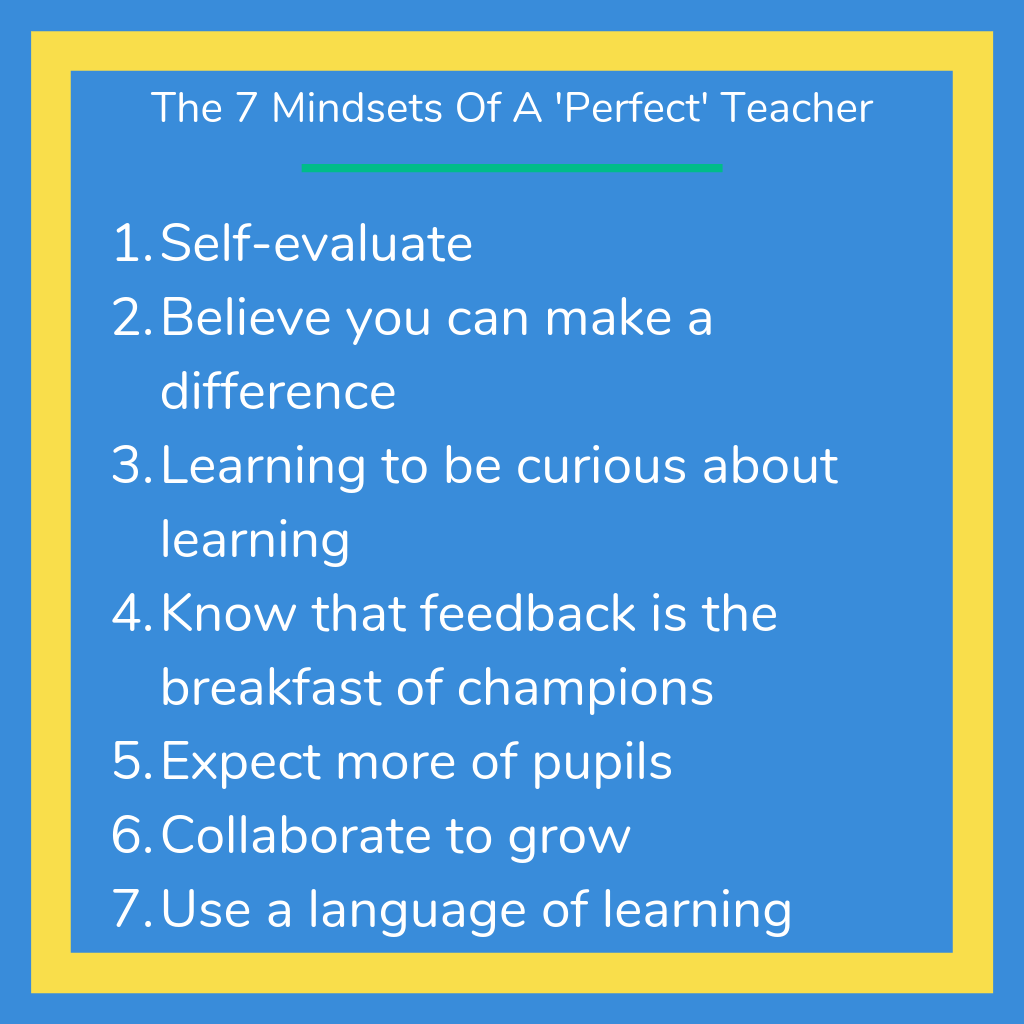
Jackie explains that effective teachers create a rapport for learning, and also delves into different examples of what excellent and interesting practice looks like and how we, as teachers, can sustain our passion and purpose.
Nobody ever said that teaching primary math effectively was going to be easy….
Read more
- What Makes A Good Elementary School Teacher
- Effective Subject leadership in Primary Schools: A 10 Point Plan
- Differentiated Instruction: 9 Differentiated Curriculum And Instruction Strategies For Teachers
- Top tips for teacher observations
Having A Positive Mindset Is Crucial For Effective Math Teaching
‘The Art Of Being A Brilliant Teacher’ by Gary Toward, Chris Henley and Andy Cope also points to the power of positive psychology and adopting a mindset that will breed success and effectiveness.
They promote the idea of being a positively powered pedagogue, ‘a 2%er’ who is a life giver and radiates energy.
They say we need to focus on 6 main points:
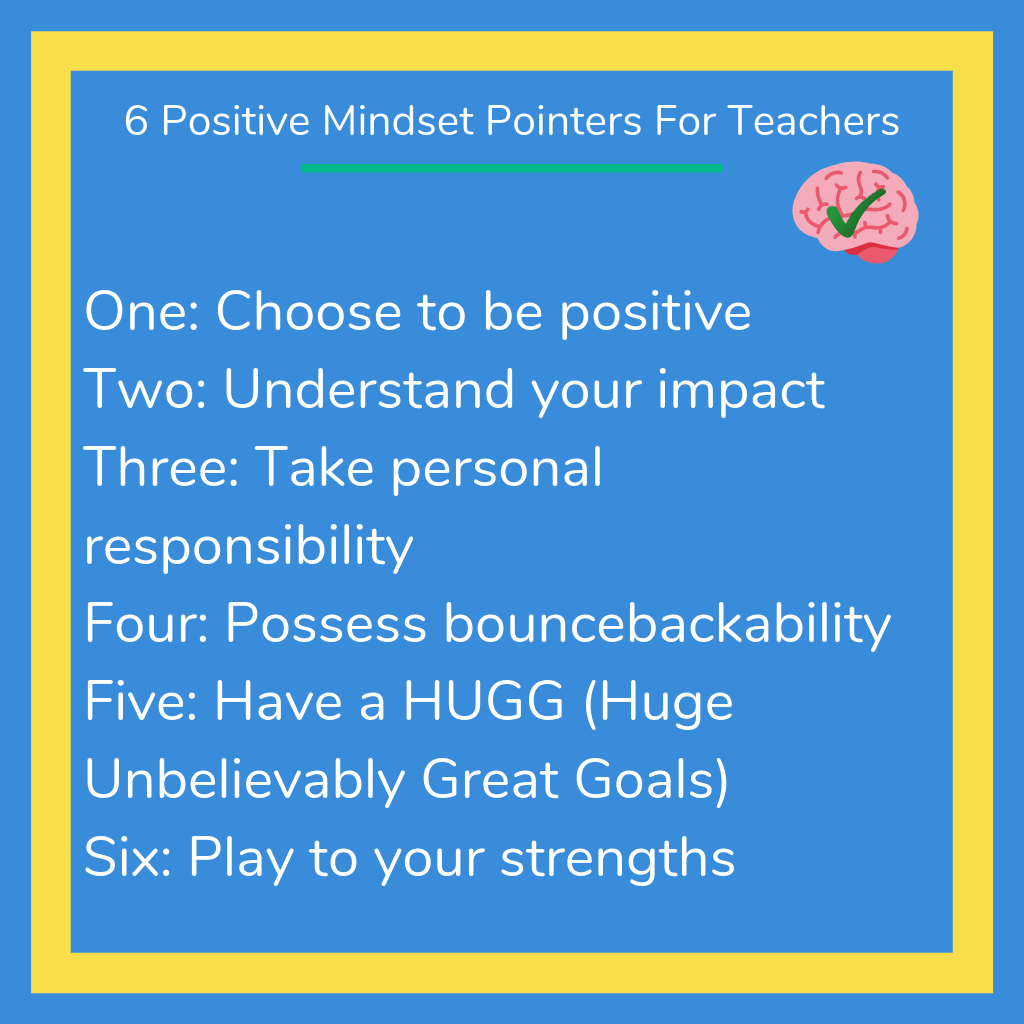
Math teachers need to do all of that and more.
They need to be everything that the science of learning tells us: resourceful, resilient, reflective, robust, intuitive, immersed, intellectual and imaginative, and that is just for starters.
The list goes on and you are probably now exhausted thinking about all the things you should be doing to effectively teach elementary school math.
But, hang in there as there’s more.
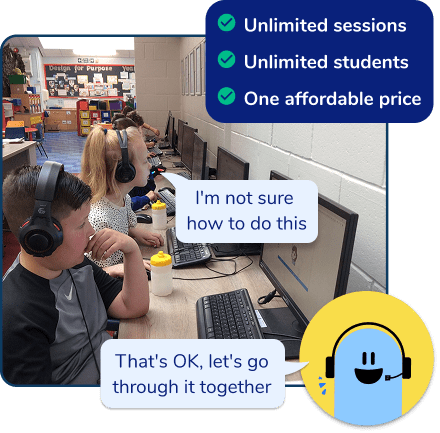
Meet Skye, the voice-based AI tutor making math success possible for every student.
Built by teachers and math experts, Skye uses the same pedagogy, curriculum and lesson structure as our traditional tutoring.
But, with more flexibility and a low cost, schools can scale online math tutoring to support every student who needs it.
Find out more
Personal Characteristics Of Effective Elementary School Math Teachers
Denis Hayes (2006) in ‘Inspiring Primary Teaching’, summarizes some of the personal characteristics you may have noticed in some of your pedagogically ‘pumped’ colleagues. I’ve added a few of my own to the list from my years of experience in elementary school education, so take a look below.
- Intelligent planners: planning for achievement comes higher than planning for motivation
- Student-centered: devoted to the care and education of students
- Passionate: work is a joy, not a chore
- Optimistic: problems are viewed as opportunities
- Proactive: initiating rather than remaining passive
- Curious: discovering how things work
- Persistent: never saying never
- Knowledge-hungry: constantly striving to learn
- Energetic: maintaining an enthusiastic approach
- Flexible: responsive to changing circumstances
- Self-responsible: refusing to blame others
- Expert differentiators: with a structured approach to differentiation in the classroom, not by providing different learners different tasks to complete
- Frugal: squeezing the most out of every situation
- Meticulous: paying close attention to detail
- Thinkers: they teach the How before the Why
- Visionary: take a long-term view
- Collaborative: promoting team effort
- Dream-makers: going for gold and enthusing others to do the same
- Pushy: they provide plenty of opportunities for children to become independent problem-solvers
- Nets: effective teachers should be nets, not spoons
Every single one of these ‘generic’ skills can be applied to any subject, and so all good and great math teachers display a lot of these characteristics.
The Number One Quality You Need To Effectively Teach Elementary School Math
All teachers strive to be more effective, and for elementary school teachers, that’s always a tall order when you are expected to be a da Vinci polymath, able to spread your talents like jam and change hats with the wind.
Now, it may sound obvious, but to actually be an effective teacher of math, you’ve got to like math.
However, the diverse nature of elementary teaching means that most teachers aren’t math subject specialists, which means that there is a sizable chunk of teachers who don’t put math in their top three subjects.
It’s not uncommon to hear elementary teachers (off the record) admit to not liking math even though they spend a good portion of their working lives teaching it.
So What Can You Do To Be An Effective Math Teacher, When Math Isn’t Your Favorite Subject?
The first thing that an effective elementary math teacher has to do is be a passionate proponent of the subject.
They have to communicate that passion to children in bucket loads and bring math to life.
If you aren’t enthusiastic or excited by a subject, it is more obvious than a yellow elephant blowing purple bubbles on the Interstate.
Admittedly, you have to bring fire and fury to every subject, but math is one of the heavyweights and needs some extra umph.
You can tell in less than two seconds who has a genuine passion for math. The unfortunate truth is that if you don’t, then you’ve got to work so much harder because you’ve got to fake it for the sake of the children.
Possessing Passion Is Key To Effective Teaching
Passion in teaching is not a luxury, or a frill, but essential to all good practice.
It is daunting to be passionate about everything you teach all of the time, but effective elementary school math teachers aren’t just content with delivering the curriculum but communicating content and ideas with sparks and gusto.
Little or no passion = little or no learning.
Math needs to be taught with energy, and so passion is a prerequisite if we are to inspire, motivate and engage children. Passionate math teachers see students as curious and creative individuals who can be encouraged to explore math with energy and excitement too.
Effective teachers (aka passionate teachers) openly display a thirst for knowledge and revel in the opportunity to learn as much as teach.
Effective math teaching is seen in the eyes, the non-verbal gestures, the voice and the math language they use in class.
Passionate teachers also tune into their students and remember that math is not always easy to grasp, so they display empathy, compassion, commitment and patience and set up an atmosphere of trust where mistakes are welcomed not ridiculed.
What Does An Effective Elementary School Math Teacher Do When It Comes To Assessment?
An effective math teacher understands that assessment for learning is a broader concept than formative assessment.
This is someone who ‘gets’ what responsive teaching is all about and helps children grow as mathematicians through formative action and reaction.
Effective teachers have an inclusive understanding of formative assessment and know that:
evidence about student achievement is elicited, interpreted, and used by teachers, learners, or their peers, to make decisions about future instruction that are likely to be better, or better founded, than the decisions that would have been taken in the absence of that evidence.
Dylan Wiliam 2018, Assessment in Education 25th Anniversary conference in Oxford
A formative classroom is what children learn most effectively in and effective teachers know this because they see understanding as relative to time and context, not absolute and permanent.
This type of classroom fosters a climate of inquiry and within this atmosphere children tend to develop knowledge that is far more adaptive and flexible.
Read more: Formative vs summative assessment in elementary school
Formative classrooms don’t label children as a particular type of learner, and effective teachers recognize that children shift and move about in their understanding: up, down, sideways and diagonally.
Labeling children can lead to erroneous thinking about what children can and can’t do and potentially a misdiagnosis of special education needs.
Effective math teachers therefore know which children require the most help and what support exactly it is they need at the time they need it.
Effective Teaching And Assessment: The Summary
The characteristics of effective teaching therefore are a clever mixture of:
- formative assessment with a whole class, group and individual discussion;
- questioning in the classroom that probes and helps to engineer discussions and scaffold understanding;
- a talk rich environment where children are taught how to articulate explanations and justify their thinking with a focus on ‘how did you get there’;
- relevant, meaningful, challenging and worthwhile tasks that are memorable (Bartram, 2017);
- a focus on exposing weaknesses and misconceptions to upgrade understanding.
These skills tie in with what research says elsewhere. The Effective Elementary Teaching Practice Report 2016, led by ex-elementary school principal Reena Keeble, found four thing effective schools and teachers have a solid understanding of:
- How children learn
- The subjects and how children learn those subjects
- Effective and ineffective teaching practices
- What learning is and how to
The things that effective schools and teachers have a solid understanding of
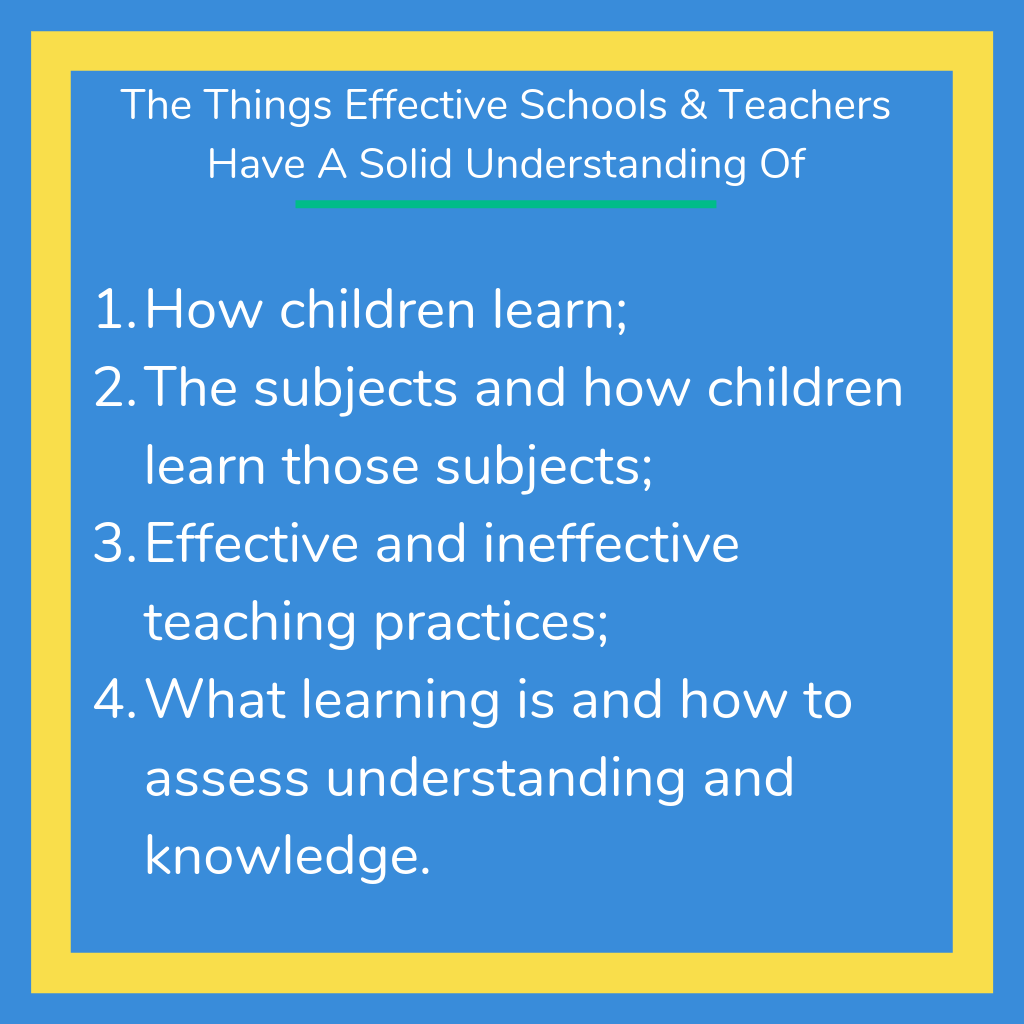
What Does An Effective Elementary School Math Teacher Do When It Comes To Research?
An effective math teacher doesn’t jump on bandwagons, but stands back and looks at the evidence.
Not just the person who is shouting the loudest.
This means being plugged into the best-evidence organizations that can inform you as to what works and what doesn’t.
Why Effective Elementary Math Teachers Don’t Rush Into Interventions
The Chartered College of Teaching (CCT) warns that “untested interventions” can be harmful and a waste of resources which is why we as teachers need to listen to research but not just any old research.
On a weekly basis, teachers are flooded with information about resources, programs and CPD, all of which make bold and persuasive claims about the impact they can have on math.
However, effective math teachers don’t fall for the one-size fits all quick fixes of snake-oil sales personnel that promise the Earth to raise attainment.
Effective math teachers are clued-up and clued-in and read around the claims to test its reliability.
They sort the corn from the husk and they do that by aligning themselves with best evidence organizations who can point them in the right direction.
What makes great teaching?
Coe et al (2014) in What makes great teaching? lists the evidence of impact on student outcomes as follows:
- Content knowledge
- Quality of instruction
- Classroom climate
- Classroom management
- Teacher beliefs
- Professional behaviors
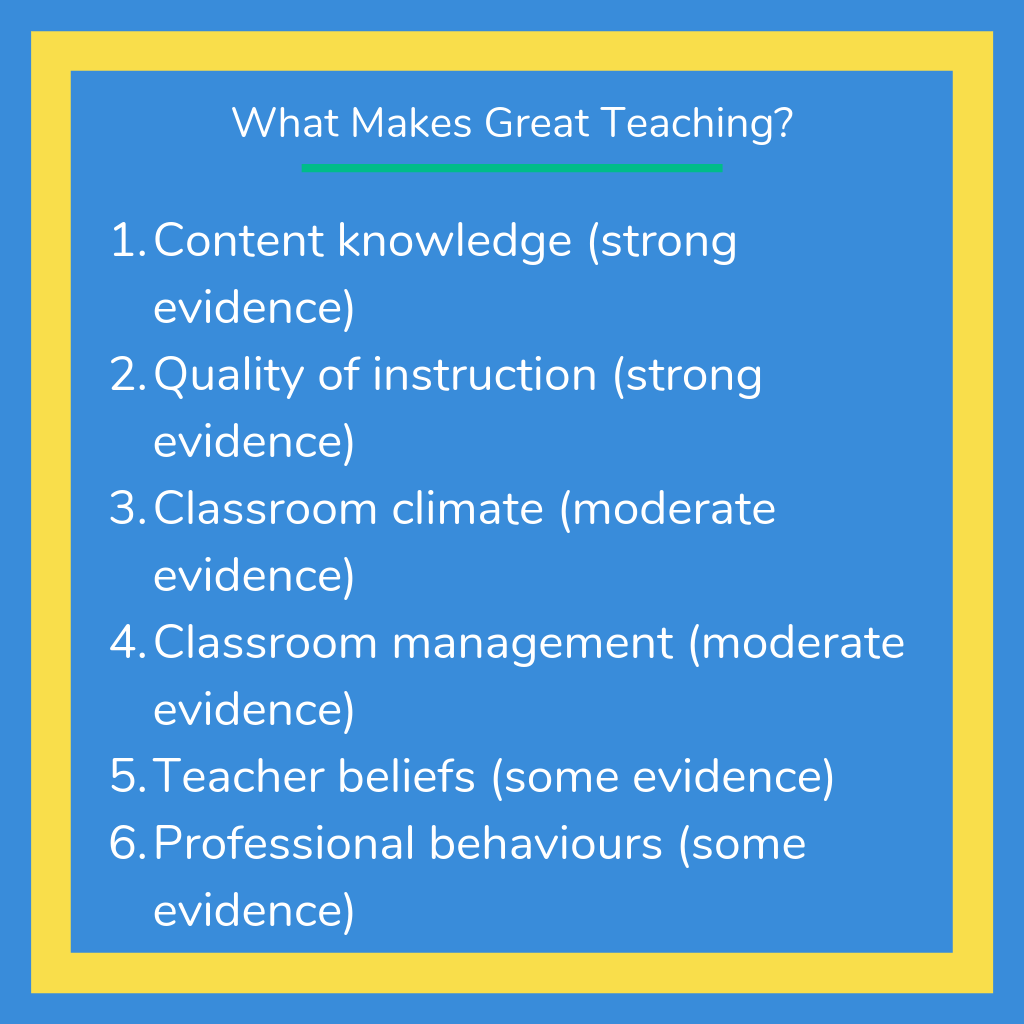
Where Do You Go To Get Your Evidence?
If you haven’t already then it’s well worth signing-up for the Best Evidence in Brief, a fortnightly e-newsletter produced by the Institute for Effective Education (IEE) at the University of York, and the Center for Research and Reform in Education at Johns Hopkins University.
This is a great place for searching on a range of topics and reading about what’s hot and what’s not.
For example, effective math teachers don’t fall for the myths, legends, fads, and math fables that have fed classrooms for years such as ‘learning styles’ and the ‘learning pyramid’.
What they do instead is bulldoze them and make sure everyone they work with knows what is based on evidence and what is based on fiction.
Why Evidence Is Crucial For Effective Teaching
One such classic example of fiction within the education world is the idea that boys are better at math than girls.
This idea is simply not true.
Girls are not inherently less good at math than boys.
You will of course find studies where boys do achieve better scores than girls, but then you’ll find other studies where girls perform better. The differences certainly aren’t biological but social and cultural, and all can theoretically be overcome with effective elementary school math teaching.
Dr Daniel Ansari, Canada Research Chair in Developmental Cognitive Neuroscience, says that in general, gender differences in math performance are small. In the following video he says “all the research that we know of shows us there are more gender similarities than there are gender differences.”
Professor Paola Sapienza found:
“The so-called gender gap in math skills seems to be at least partially correlated to environmental factors” and the gap doesn’t exist in more gender-equal societies. Boys outperform girls in math in cultures where there is an expectation that boys are stronger than girls in math (and other skill areas).
Therefore, effective math teachers don’t see gender gaps, but look at gender similarities and promote the idea that everyone has a math brain (see Jo Boaler’s video below). This way, we can avoid the ‘boys are better at math’ mindset which is creating a gender gap in STEM subjects.
It All Comes Down To The Evidence And Knowing What Works
Rosenshine (2012) in ‘Principles of Instruction: Research-Based Strategies That All Teachers Should Know’, lists 10 research-based principles from cognitive science that all effective math teachers should know:
- Begin a lesson with a short review of previous learning.
- Present new material in small steps with practice after each step.
- Ask lots of questions and check the responses of all learners.
- Provide models.
- Guide students’ practice.
- Check for student understanding.
- Obtain a high success rate.
- Provide scaffolds for difficult tasks.
- Require and monitor independent practice.
- Engage students in weekly and monthly review.
Read more: Direct Instruction & Learning From Rosenshine Principles Of Instruction
Mastery And Effective Elementary School Math Teaching
Despite the labels we give to math and whatever flavor of the month we follow, certain elements remain the same.
Effective math teaching has always involved a real mish-mash of skills and it is important to discuss features of whole-class teaching such as:
- High expectations for all children
- Direct and interactive teaching (explicit teaching) including explicit teaching of math vocabulary and the mathematical terms and sentence stems they’ll need at primary school
- Varied use of resources
- A variety of activities
- A range of questions and prompts supporting children at various levels of understanding
- Effective feedback
- Use of data to inform and improve practice
- Classroom management
- Math wellbeing
- Collaboration
- Same day intervention
But effective teaching goes much deeper than that and if you are a ‘mastery’ math school, then you will need to consider a range of features that feed into Teaching and Leading for Mastery (TLfM) and this is best done through a self-evaluation toolkit.
Read more
Effective Math Teaching Isn’t Easy, But It Is Worth It!
Effective math teaching at elementary school encompasses an enormous set of skills (not forgetting all the other subject skills needed).
One of the most important skills to have is a commitment to professional development to keep skills sharp, informed and relevant.
The most effective elementary school teachers of math see the teaching of math isn’t about transmitting subject knowledge or providing opportunities for children to discover math: rather it is a matter of exploring the connections within math with children.
Effective teaching therefore makes connections between what children know, don’t know and partly know to upgrade thinking and link new learning.
We can never really be sure what works in one class and not with another but Craig Barton (2018) in his excellent book, ‘How I Wish I’d Taught Math’, singles out what he thinks makes for great teaching and that is an explicit instruction model, “especially in the early knowledge acquisition phase of learning.
So, when I am introducing a topic for the first time, regardless of age or prior achievement of the class, I will use an explicit instruction approach.”
Read more:
- Cognitive Load Theory In The Classroom
- What Is A Spiral Curriculum?
- Student Centered Learning: A Teacher’s Guide
- How to Manage Test Anxiety
If you can combine all of the qualities and skills mentioned above then you aren’t just an effective teacher of math but borderline superhuman.
Do you have students who need extra support in math?
Skye—our AI math tutor built by experienced teachers—provides students with personalized one-on-one, spoken instruction that helps them master concepts, close skill gaps, and gain confidence.
Since 2013, we’ve delivered over 2 million hours of math lessons to more than 170,000 students, guiding them toward higher math achievement.
Discover how our AI math tutoring can boost student success, or see how our math programs can support your school’s goals:
– 3rd grade tutoring
– 4th grade tutoring
– 5th grade tutoring
– 6th grade tutoring
– 7th grade tutoring
– 8th grade tutoring
The content in this article was originally written by Ofsted inspector and teacher John Dabell and has since been revised and adapted for US schools by elementary math teacher Christi Kulesza.
